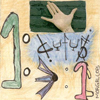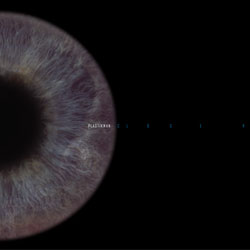 "The Illness" bombastically opens the second full-length release onIpecac for Kid 606. It's a refreshing change from what seemed like anendless parade of songs entirely built on popular hip hop samples,which, frankly got really old, really quick. From minute one, we'redancing again: it's not a just a barrage of noise and it makes nearlyeverything since the last full-length record seem like filler. It seemsthat an attention on both song structure and fun stuff are being givennearly equally. However, some of my favorite elements like melody andconsistency within a few tracks are forfeitted by a strong attentiondefeceit, but it's always been a 606-ism, dating back to the VinylCommunication days. Much like his last Ipecac full-lengther (gosh wasit over three years ago already?) Kill Soundis much like a collection of sorts, providing slices of the variousstyles 606 has tackled over the years. There's plenty of nightmarishupbeat post-gabber noisefests like "Powerbookfiend" and the b-side to The Illness,"Ecstasy Motherfucker," while downtempo breathers like "Andy Warhol isDead" and the serene closer "Parenthood" are very pretty but a bit tooshort. Wayne Lonesome, a dancehall DJ/vocalist from Kingston arrives onthe scene (most likely through the Bug and Rootsman connection) to givevoice for "Buckle Up," which is probably the strongest track on thedisc (look for a hot 12" on the new offshoot Shockout). At times, riffsare started but neither strengthened nor mutated, making repetition ofideas and lingering memories a bit difficult. The psycho-dub bass riffat the end of "Who Wah Kill Sound?" for example aches to be exploitedand mutated, but is left pretty much alone. What is repeated, (orperhaps overused), are some of the samples used throughout differenttracks. (God I wish he gave up the "yeah, wow" bit was killed after thefirst song.) Those who have been able to catch 606 live this past yearhave probably noticed how much more dense the music seems to bebecoming, and in most respects, this album is a fun dance party, buthe's proven that he has the ability to make a few brilliant songscompletely over the top, and after seeing a fantastic live show, I maybe guilty of expecting something ever so slightly more on an album. Theaddition of the video for "The Illness," however, is awesome, as acartoon kitten tries to kill sound before sound kills him.
"The Illness" bombastically opens the second full-length release onIpecac for Kid 606. It's a refreshing change from what seemed like anendless parade of songs entirely built on popular hip hop samples,which, frankly got really old, really quick. From minute one, we'redancing again: it's not a just a barrage of noise and it makes nearlyeverything since the last full-length record seem like filler. It seemsthat an attention on both song structure and fun stuff are being givennearly equally. However, some of my favorite elements like melody andconsistency within a few tracks are forfeitted by a strong attentiondefeceit, but it's always been a 606-ism, dating back to the VinylCommunication days. Much like his last Ipecac full-lengther (gosh wasit over three years ago already?) Kill Soundis much like a collection of sorts, providing slices of the variousstyles 606 has tackled over the years. There's plenty of nightmarishupbeat post-gabber noisefests like "Powerbookfiend" and the b-side to The Illness,"Ecstasy Motherfucker," while downtempo breathers like "Andy Warhol isDead" and the serene closer "Parenthood" are very pretty but a bit tooshort. Wayne Lonesome, a dancehall DJ/vocalist from Kingston arrives onthe scene (most likely through the Bug and Rootsman connection) to givevoice for "Buckle Up," which is probably the strongest track on thedisc (look for a hot 12" on the new offshoot Shockout). At times, riffsare started but neither strengthened nor mutated, making repetition ofideas and lingering memories a bit difficult. The psycho-dub bass riffat the end of "Who Wah Kill Sound?" for example aches to be exploitedand mutated, but is left pretty much alone. What is repeated, (orperhaps overused), are some of the samples used throughout differenttracks. (God I wish he gave up the "yeah, wow" bit was killed after thefirst song.) Those who have been able to catch 606 live this past yearhave probably noticed how much more dense the music seems to bebecoming, and in most respects, this album is a fun dance party, buthe's proven that he has the ability to make a few brilliant songscompletely over the top, and after seeing a fantastic live show, I maybe guilty of expecting something ever so slightly more on an album. Theaddition of the video for "The Illness," however, is awesome, as acartoon kitten tries to kill sound before sound kills him.
Two new shows just for you. We have squeezed out two extended release episodes for this weekend to get you through this week. They contain mostly new songs but there's also new issues from the vaults. The first show features music from Rider/Horse, Mint Field, Robert Aiki Aubrey Lowe, Anastasia Coope, ISAN, Stone Music, La Securite, Bark Psychosis, Jon Rose, Master Wilburn Burchette, Umberto, Wand, Tim Koh, Sun An, and Memory Drawings. The second episode has music by Laibach, Melt-Banana, Chuck Johnson, X, K. Yoshimatsu, Dorothy Carter, Pavel Milyakov, Violence Gratuite, Mark Templeton, Dummy, Endon, body / negative, Midwife, Alberto Boccardi, Divine. Cow in Maui from Veronika in Vienna. Get involved: subscribe, review, rate, share with your friends, send images! |



 Just when I thought I was through with all of these worthless bandswith "The" in the title — like it's something important that they're"The" anything — here comes one I adore, and will be listening to foryears to come. The Sems is essentially Pete Bogolub, who wrote andrecorded the lion's share of the album at home, bringing in somefriends later on to augment it and make it all sound like a soulbursting at its seams. His is a raw and simple indie pop sound, withspace rock leanings and fascinating melodies. Bogolub is shy about hisvocals, it would seem, as they are drowned out by the music anddrenched in effects, but his faint whispers are just what is neededhere and there. The music and subject matter take interesting twistsand turns, — sometimes separate, sometimes together — and it's a bitstartling but desperately wanted once I got used to it. The switch from"Harmless" (shoegazer) to "Stalker But Nice" (noise pop), on to"Curlew" (ethereal ambience) and then "Speak Softly" (more noise pop)is an especially jarring progression, but after that the album settlesinto a nice calm and even jangly pace. It's there that the braverycomes on a little more in instrumentation and vocals, but it's neverover a certain even keel, and that's where the real beauty is. Theearlier tracks have an unadulterated passion to be sure, but the latterhalf has sweetness and comfort to spare, with enough minor detours offancy to make the heart ache and the brain swell. These musings are notcomplicated or even challenging: just straight-ahead power pop withsome depth and definition. For Audraglint's first CD release and TheSems debut I don't think there are better results to be found.
Just when I thought I was through with all of these worthless bandswith "The" in the title — like it's something important that they're"The" anything — here comes one I adore, and will be listening to foryears to come. The Sems is essentially Pete Bogolub, who wrote andrecorded the lion's share of the album at home, bringing in somefriends later on to augment it and make it all sound like a soulbursting at its seams. His is a raw and simple indie pop sound, withspace rock leanings and fascinating melodies. Bogolub is shy about hisvocals, it would seem, as they are drowned out by the music anddrenched in effects, but his faint whispers are just what is neededhere and there. The music and subject matter take interesting twistsand turns, — sometimes separate, sometimes together — and it's a bitstartling but desperately wanted once I got used to it. The switch from"Harmless" (shoegazer) to "Stalker But Nice" (noise pop), on to"Curlew" (ethereal ambience) and then "Speak Softly" (more noise pop)is an especially jarring progression, but after that the album settlesinto a nice calm and even jangly pace. It's there that the braverycomes on a little more in instrumentation and vocals, but it's neverover a certain even keel, and that's where the real beauty is. Theearlier tracks have an unadulterated passion to be sure, but the latterhalf has sweetness and comfort to spare, with enough minor detours offancy to make the heart ache and the brain swell. These musings are notcomplicated or even challenging: just straight-ahead power pop withsome depth and definition. For Audraglint's first CD release and TheSems debut I don't think there are better results to be found.  Both 2000's eponymous double album and 2001's New Electric Music have shown New Zealand's famed noise rockers moving (perhaps lurching) towards a more sparse, more seductive sound. Though any Dead C record will inevitably contain enough variety to postpone classification and prolong interest, the group's post-millenium output so far has predicted a steady increase in song quality, as well as more broad, stylistic refinement. The shoddily-produced, clattering heap of guitar, bass, and drum noise that was the signature sound of early Dead C has taken a thinner, more bottom-heavy, and more atmospheric form as of late, with concentration on complex textures and assemblage rather than riff torture.
Both 2000's eponymous double album and 2001's New Electric Music have shown New Zealand's famed noise rockers moving (perhaps lurching) towards a more sparse, more seductive sound. Though any Dead C record will inevitably contain enough variety to postpone classification and prolong interest, the group's post-millenium output so far has predicted a steady increase in song quality, as well as more broad, stylistic refinement. The shoddily-produced, clattering heap of guitar, bass, and drum noise that was the signature sound of early Dead C has taken a thinner, more bottom-heavy, and more atmospheric form as of late, with concentration on complex textures and assemblage rather than riff torture. This is precisely what I would expect from a band that's trying tochange the world and sound extraordinarly unique. It's all over-the-topand contrived to the point of oblivion. It's as if the band gottogether and said to themselves "Lets be a whacky group ofpseudo-anti-somethings and write annoying lyrics with even moreannoying performances thereof while also trying to imitate some ofthose tripped out black and white cartoons from way back in the day." Ican see it, now: this band is going to be called amazing and inventivebecause their live act is akin to a sideshow circus (see the videoincluded on the CD) and their album features amazing sonic tangentsthat light up the speakers in ways never thought possible. I'll be thefirst to say that's a load of shit. There's nothing here I haven'theard before and I've heard it done a thousand times better. This ispopular music wrapped up in a hipster burrito so as to be acceptable topeople that find The Strokes and The White Stripes unacceptable forwhatever asthetic reasons that come to mind. To be specific, the track"Mor Grl Cops" features a near metal-esque guitar rhythm sectioncombined with a gypsy violin, a child-like choir, some drugged leadvocalist, and some guy that likes to scream "if life were a game /you'd say shoot shoot / bang bang and your dead." At times I think thevocalists must want to create a nightmarish listening experience whereguttural whines and Yoko Ono screeches mix in a soup of acousticstrumming and those all too predictable chord progressions. In the end,it all ends up sounding way too typical.I was able to predict when weird sounds were going to be used, I knewwhen the breakdowns were coming, and I knew from the first note howthespian the singer would get with his performance. It's predictable tosay the least and in the end the whole package betrays the image itwishes to portray thanks to the band's concentrated attempt at comingoff as something esoteric, mysterious, and important. I've been toldnoise is an annoying genre, but noise has never given me a headachelike 1:3:1 has.
This is precisely what I would expect from a band that's trying tochange the world and sound extraordinarly unique. It's all over-the-topand contrived to the point of oblivion. It's as if the band gottogether and said to themselves "Lets be a whacky group ofpseudo-anti-somethings and write annoying lyrics with even moreannoying performances thereof while also trying to imitate some ofthose tripped out black and white cartoons from way back in the day." Ican see it, now: this band is going to be called amazing and inventivebecause their live act is akin to a sideshow circus (see the videoincluded on the CD) and their album features amazing sonic tangentsthat light up the speakers in ways never thought possible. I'll be thefirst to say that's a load of shit. There's nothing here I haven'theard before and I've heard it done a thousand times better. This ispopular music wrapped up in a hipster burrito so as to be acceptable topeople that find The Strokes and The White Stripes unacceptable forwhatever asthetic reasons that come to mind. To be specific, the track"Mor Grl Cops" features a near metal-esque guitar rhythm sectioncombined with a gypsy violin, a child-like choir, some drugged leadvocalist, and some guy that likes to scream "if life were a game /you'd say shoot shoot / bang bang and your dead." At times I think thevocalists must want to create a nightmarish listening experience whereguttural whines and Yoko Ono screeches mix in a soup of acousticstrumming and those all too predictable chord progressions. In the end,it all ends up sounding way too typical.I was able to predict when weird sounds were going to be used, I knewwhen the breakdowns were coming, and I knew from the first note howthespian the singer would get with his performance. It's predictable tosay the least and in the end the whole package betrays the image itwishes to portray thanks to the band's concentrated attempt at comingoff as something esoteric, mysterious, and important. I've been toldnoise is an annoying genre, but noise has never given me a headachelike 1:3:1 has.  Sweet Trip have never made much sense to me, and they make even lesswith this record. It's always been too much a sound drenched in theDaft Punk motif for me, and this record continues in that vein. Denseelectronics swirl and build towards an aural climax only to berepeatedly foiled throughout by premature earjaculation, where theeardrums give out or the cerebral cortex just gives up. Sure, I guessall the right elements are there, with the clever arrangements by Robyand pure saccharine vocals by Valerie Reyes, but it's nothingearth-shattering or even noteworthy that hasn't been traveled before bybetter artists. There's a blatant largesse in these songs, whereeverything is louder than it should be, has more going on than isneeded, and takes way too long to end something that probably was bestnot even beginning. As annoying as Daft Punk are ("One More Time,"anyone?), they seem to know when to call it quits or to keep it short.Not Sweet Trip, on the other hand, who feature three songs over theeight minute mark with one honorable mention at two seconds shy, and Ican't even tell you one part I liked on them. "Velocity" shivers andshakes too much to get where it's going, and then when it gets there itfeels like dancehall trash. "International" languishes, bleeding like astuck pig, waiting for an inspiration of meaning, only to result tocut-up vocals and beats that sounded better when Dntel or Four Tet didthem. And "Sept" is only rendered interesting by the fantastic tablawork by guest Aaron Porter; after that, it's fairly by the bookelectronic indie pop, but goes on far too long for its own good.Elsewhere, the jarring Europop of "Dsco" sounds like Robbie Williamsand Sophie Ellis Bextor's ugly offspring, and "To All the Dancers..."sounds like a cheap imitation of some of Björk's best remixes. Stillnot clear to me, but not dead to me just yet.
Sweet Trip have never made much sense to me, and they make even lesswith this record. It's always been too much a sound drenched in theDaft Punk motif for me, and this record continues in that vein. Denseelectronics swirl and build towards an aural climax only to berepeatedly foiled throughout by premature earjaculation, where theeardrums give out or the cerebral cortex just gives up. Sure, I guessall the right elements are there, with the clever arrangements by Robyand pure saccharine vocals by Valerie Reyes, but it's nothingearth-shattering or even noteworthy that hasn't been traveled before bybetter artists. There's a blatant largesse in these songs, whereeverything is louder than it should be, has more going on than isneeded, and takes way too long to end something that probably was bestnot even beginning. As annoying as Daft Punk are ("One More Time,"anyone?), they seem to know when to call it quits or to keep it short.Not Sweet Trip, on the other hand, who feature three songs over theeight minute mark with one honorable mention at two seconds shy, and Ican't even tell you one part I liked on them. "Velocity" shivers andshakes too much to get where it's going, and then when it gets there itfeels like dancehall trash. "International" languishes, bleeding like astuck pig, waiting for an inspiration of meaning, only to result tocut-up vocals and beats that sounded better when Dntel or Four Tet didthem. And "Sept" is only rendered interesting by the fantastic tablawork by guest Aaron Porter; after that, it's fairly by the bookelectronic indie pop, but goes on far too long for its own good.Elsewhere, the jarring Europop of "Dsco" sounds like Robbie Williamsand Sophie Ellis Bextor's ugly offspring, and "To All the Dancers..."sounds like a cheap imitation of some of Björk's best remixes. Stillnot clear to me, but not dead to me just yet. For any true Guided By Voices fan, this collection is a bit pointless.This is the "best of" anthology that many have been urging Bob Pollardto compile for years. Not that they are finished releasing music, nordo they need another record to flood the bins that are alreadychock-full with their library; it's just that enough time has passedthat perhaps a compilation like this can show the history of the bandin a grander light. That is the one thing that this set does reallywell. Thirty-two tracks that are from a variety of their albums,singles, and EPs on Matador, Scat, TVT, and others, Human Amusementsserves not only as a reminder that the band is near genius almost allthe time, but that it takes a gathering of this kind to make a GuidedBy Voices album where no song is disposable. Every track is arevelation of the period in which it was recorded, but all together onone CD it's enough to do my head in. The only possible complaint —though not mine as I actually admire the move — is that there is noexclusive material to be found on the disc. This bucks the trend thathas become all to commonplace in this decade, and it's refreshing eventhough it almost damns this release to casual or first-time listenersonly. No matter: it's still the truest retrospective I've ever heardthat I didn't make myself. There are rare tracks, like the originalrecordings of "Teenage FBI" and "Game of Pricks," solid performers like"I Am a Tree," "Bulldog Skin," "Chasing Heather Crazy," "EverywhereWith Helicopter," and "Glad Girls" from the recent albums, and classicslike "Tractor Rape Chain," "14 Cheerleader Coldfront," "To Remake theYoung Flyer," and "The Official Ironmen Rally Song." This is a show ofstrength, a friendly glimpse at a much larger picture, maybe even achallenge to all of the mix tapes fans have made throughout the years;and it's a damned good one. As if their fans needed this villification.
For any true Guided By Voices fan, this collection is a bit pointless.This is the "best of" anthology that many have been urging Bob Pollardto compile for years. Not that they are finished releasing music, nordo they need another record to flood the bins that are alreadychock-full with their library; it's just that enough time has passedthat perhaps a compilation like this can show the history of the bandin a grander light. That is the one thing that this set does reallywell. Thirty-two tracks that are from a variety of their albums,singles, and EPs on Matador, Scat, TVT, and others, Human Amusementsserves not only as a reminder that the band is near genius almost allthe time, but that it takes a gathering of this kind to make a GuidedBy Voices album where no song is disposable. Every track is arevelation of the period in which it was recorded, but all together onone CD it's enough to do my head in. The only possible complaint —though not mine as I actually admire the move — is that there is noexclusive material to be found on the disc. This bucks the trend thathas become all to commonplace in this decade, and it's refreshing eventhough it almost damns this release to casual or first-time listenersonly. No matter: it's still the truest retrospective I've ever heardthat I didn't make myself. There are rare tracks, like the originalrecordings of "Teenage FBI" and "Game of Pricks," solid performers like"I Am a Tree," "Bulldog Skin," "Chasing Heather Crazy," "EverywhereWith Helicopter," and "Glad Girls" from the recent albums, and classicslike "Tractor Rape Chain," "14 Cheerleader Coldfront," "To Remake theYoung Flyer," and "The Official Ironmen Rally Song." This is a show ofstrength, a friendly glimpse at a much larger picture, maybe even achallenge to all of the mix tapes fans have made throughout the years;and it's a damned good one. As if their fans needed this villification.  Was it hard to guess which direction the Load roster was headed? Afterchasing metal through a gauntlet of spastic duos with cracked guitarsand rack-less (gasp!) drums, the label sets its sights on the secondscourge of white suburbia: progressive rock. East-coastersUSAISAMONSTER are a guitar/drums duo with an affinity for the tight,noisy, and epic-length songs of labelmates like Lightning Bolt, butmade over with an arty, even jazzist take on guitar skronk and anelaborate, narrative approach to songwriting. Tasheyana Compost,their third and most mature full length, is a concept album dealingwith colonialism and the ravaged American landscape. One song's lyricsare taken from Chief Joseph's words; elsewhere declarations like "thisprogress looks like cancer cells to me" add a preachy element that issurprisingly welcome in the wake of so many noise rockers with nothingto say. The band compensates for any lyrical heavy-handedness withmock-poignant tales of highway adventure and humorous free associationsections. Likewise, the music oscillates between full-on noise blitzand more tongue-in-cheek bits where cheap keyboard sounds and stylizedcrooning appear. Blowout metal riffs mix freely with choppy acousticplaying, and strained screaming bleeds into the elfin chanting ofwoeful vagabonds. The stripped-down nature of the music prevents itsslipping into a mathy or studied sound, and the lyrical wit coveringevery track adds a proud, human quality. The whole is neatly nuanced,and while repetitious at times (especially the noisy parts), the albumsurvives on sheer exuberance. There's nothing fashionable here; thoughsome may fail to look beyond its raucous exterior, Tasheyana Compost is rich with blood of its own design, progressive rock stripped of all mysticism, carefully pessimistic, and damn fun.
Was it hard to guess which direction the Load roster was headed? Afterchasing metal through a gauntlet of spastic duos with cracked guitarsand rack-less (gasp!) drums, the label sets its sights on the secondscourge of white suburbia: progressive rock. East-coastersUSAISAMONSTER are a guitar/drums duo with an affinity for the tight,noisy, and epic-length songs of labelmates like Lightning Bolt, butmade over with an arty, even jazzist take on guitar skronk and anelaborate, narrative approach to songwriting. Tasheyana Compost,their third and most mature full length, is a concept album dealingwith colonialism and the ravaged American landscape. One song's lyricsare taken from Chief Joseph's words; elsewhere declarations like "thisprogress looks like cancer cells to me" add a preachy element that issurprisingly welcome in the wake of so many noise rockers with nothingto say. The band compensates for any lyrical heavy-handedness withmock-poignant tales of highway adventure and humorous free associationsections. Likewise, the music oscillates between full-on noise blitzand more tongue-in-cheek bits where cheap keyboard sounds and stylizedcrooning appear. Blowout metal riffs mix freely with choppy acousticplaying, and strained screaming bleeds into the elfin chanting ofwoeful vagabonds. The stripped-down nature of the music prevents itsslipping into a mathy or studied sound, and the lyrical wit coveringevery track adds a proud, human quality. The whole is neatly nuanced,and while repetitious at times (especially the noisy parts), the albumsurvives on sheer exuberance. There's nothing fashionable here; thoughsome may fail to look beyond its raucous exterior, Tasheyana Compost is rich with blood of its own design, progressive rock stripped of all mysticism, carefully pessimistic, and damn fun.  One of my first encounters with techno came in the form of afull-length cassette released on Wax Trax! Records by an artist calledF.U.S.E. From the first time I heard the classic "Train Tracs," I knewthere was something about this music (and the producer, Richie Hawtin)that I needed to explore further. Though at the time I was heavy intoindustrial music, I viewed that cassette as a unique gem in my musiccollection, one I would refer back to regularly. Fast forward to thepresent: Hawtin is now one of the most in-demand DJs in the world andcertainly one of my favorites. Finally, after several years of nearsilence as a musician, he has pulled together Closer,a new album of material under his most well known moniker—Plastikman.Taking cues from his previous work as well as injecting elements ofdark ambient and industrial music in the mix, the ten songs presentedhere are some of the bleakest and most atmospheric tracks Hawtin hasever produced. Building up the minimal aesthetic of his Consumedalbum to something far less bare, Hawtin fuses together razor sharpbeats, snarling bass tones, microscopic melodies, unrecognizable 303manipulations, and, at times, spoken word poetry. The crisp 4/4 rhythmsof "Headcase," though never quite delivering the anticipated punch,erratically lose their way among the clutter of quirky bleeps. "PingPong" and "I Don't Know" (the latter treating us to some classicchillour acid around the 6:00 mark) follow a similar experimental routebut has a heavier clubby feel ideal for open-minded dancefloors. "Lost"deviates from the formula a bit with a prominent string sequencegliding over the gutteral rumbles and de-tuned stabs that fill thisbeatless space. Of course, this serves as a proper introduction to thealbum's first single "Disconnect," a menacing yet groovy vocal track.Be forewarned: those of you who've endured countless goth bands intheir lives will cringe at the dismally low quality of Hawtin's prose.Still, I urge you to look past this one indulgence as the solitary flawon an otherwise perfect release. Headphone use is strongly encouraged.
One of my first encounters with techno came in the form of afull-length cassette released on Wax Trax! Records by an artist calledF.U.S.E. From the first time I heard the classic "Train Tracs," I knewthere was something about this music (and the producer, Richie Hawtin)that I needed to explore further. Though at the time I was heavy intoindustrial music, I viewed that cassette as a unique gem in my musiccollection, one I would refer back to regularly. Fast forward to thepresent: Hawtin is now one of the most in-demand DJs in the world andcertainly one of my favorites. Finally, after several years of nearsilence as a musician, he has pulled together Closer,a new album of material under his most well known moniker—Plastikman.Taking cues from his previous work as well as injecting elements ofdark ambient and industrial music in the mix, the ten songs presentedhere are some of the bleakest and most atmospheric tracks Hawtin hasever produced. Building up the minimal aesthetic of his Consumedalbum to something far less bare, Hawtin fuses together razor sharpbeats, snarling bass tones, microscopic melodies, unrecognizable 303manipulations, and, at times, spoken word poetry. The crisp 4/4 rhythmsof "Headcase," though never quite delivering the anticipated punch,erratically lose their way among the clutter of quirky bleeps. "PingPong" and "I Don't Know" (the latter treating us to some classicchillour acid around the 6:00 mark) follow a similar experimental routebut has a heavier clubby feel ideal for open-minded dancefloors. "Lost"deviates from the formula a bit with a prominent string sequencegliding over the gutteral rumbles and de-tuned stabs that fill thisbeatless space. Of course, this serves as a proper introduction to thealbum's first single "Disconnect," a menacing yet groovy vocal track.Be forewarned: those of you who've endured countless goth bands intheir lives will cringe at the dismally low quality of Hawtin's prose.Still, I urge you to look past this one indulgence as the solitary flawon an otherwise perfect release. Headphone use is strongly encouraged.  I have been waiting for Markus Popp to make a record like this for so long! His appearance on Gastr Del Sol's Camofleurgave me taste of what Popp would do when faced with a singer-songwritercollaboration, but while that contribution was effective, it was purelysupplemental. Popp's variety of remixes show the artist closer to hisunique Oval-shaped niche, but often fail to evoke anything more than apicture of Popp's struggle to fit the original song to his own unsuiteddevices. So, Popp's collaboration with Japanese chanteuse Eri Toyoda,is a lot like the Oval remix canon in that every bit of sound bends,and eventually breaks, under the pressure of Popp's established style.The difference, however, is that Toyoda's songs lend themselves sogracefully to her bandmate's fractured aesthetic that the result isboth different, and on par with anything Popp has produced so far.Toyoda's soothing guitar, vocals, and organ weave their autumnal motifsthrough familiar rolling static and panes of gleaming digital noisewith the weightlessness and relaxed flow of improvisation; they help tosoften the pointed bursts and taut clusters of recent Oval withoutlosing Popp's unique tension and mystique. CD skips are nowhere to befound, replaced by a rich, organic palette and warm low-end. Thelistening experience's great pleasure comes in the impossibility oflocating the origins of many of the sounds. Toyoda's vocals proveremarkably adaptable to the complexities of each track and are oftendifficult to locate among the layered warbling and whistling soundsthat appear throughout. Though the subtle beauty and fresh melodicachievements of this record may not surprise fans of Microstoria andearly Oval, it would be hard stay unimpressed by the level ofintegration achieved. So is the sound of truly singular artistsengaged in a tender, meticulous, and fruitful dialogue with predictablygorgeous results.
I have been waiting for Markus Popp to make a record like this for so long! His appearance on Gastr Del Sol's Camofleurgave me taste of what Popp would do when faced with a singer-songwritercollaboration, but while that contribution was effective, it was purelysupplemental. Popp's variety of remixes show the artist closer to hisunique Oval-shaped niche, but often fail to evoke anything more than apicture of Popp's struggle to fit the original song to his own unsuiteddevices. So, Popp's collaboration with Japanese chanteuse Eri Toyoda,is a lot like the Oval remix canon in that every bit of sound bends,and eventually breaks, under the pressure of Popp's established style.The difference, however, is that Toyoda's songs lend themselves sogracefully to her bandmate's fractured aesthetic that the result isboth different, and on par with anything Popp has produced so far.Toyoda's soothing guitar, vocals, and organ weave their autumnal motifsthrough familiar rolling static and panes of gleaming digital noisewith the weightlessness and relaxed flow of improvisation; they help tosoften the pointed bursts and taut clusters of recent Oval withoutlosing Popp's unique tension and mystique. CD skips are nowhere to befound, replaced by a rich, organic palette and warm low-end. Thelistening experience's great pleasure comes in the impossibility oflocating the origins of many of the sounds. Toyoda's vocals proveremarkably adaptable to the complexities of each track and are oftendifficult to locate among the layered warbling and whistling soundsthat appear throughout. Though the subtle beauty and fresh melodicachievements of this record may not surprise fans of Microstoria andearly Oval, it would be hard stay unimpressed by the level ofintegration achieved. So is the sound of truly singular artistsengaged in a tender, meticulous, and fruitful dialogue with predictablygorgeous results. Real sensuality and breathtaking eroticism do not spontaneously combustinto existence: both are difficult and intricate structures thatrequire careful study. Mandy Cousins and Michael Turner shape huge andsprawling spaces out of the most profane and sacred sounds; the resultis a stream of voluptuous and melting music bordering on the heavenly.Listening to Titaniafor the first time reminded me of rolling hills and fine mists,decaying architecture and ivy. The combination of Cousins' fine voicewith Turner's fluent orchestration creates an atmosphere that is nearlyholy: distant bells ring in towers somewhere beyond the horizon,guitars echo through long and decorated hallways, and fires burn onlonely mountain tops covered with snow. The music is epic and bloomingand I can literally feel it grow around and over me every time I listento it. With time I've come to realize just how sensuous the music isand the means by which it attains that sensuality is absolutelycunning. There's a void that permeates the whole of the recording; it'ssomehow present even in when the keyboards are ringing as if I were inthe midst of a grand cathedral. Slowly, over the course of the album,the music gets inside my blood and leaves me floating; it slowly peelsoff every common notion I have until I am stripped to nothingness.Songs like "Digitaria" and "Postscript" are like knives that cut deepand leave the strangest and most pleasurable numbness throughout mybody. In short, there's a strange play between the sacred and theerotic flourishing throughout every note of every song. It's a tangibleand all-consuming tension that manages to put butterflies in my stomachevery time. The strange psychadelia of "Tinsel Starred" all the way tothe ominous and hesitant "Blue Iris Eternal" keeps me suspended in avoid, in a constant struggle between peace and relaxation and theanxiety of chance.
Real sensuality and breathtaking eroticism do not spontaneously combustinto existence: both are difficult and intricate structures thatrequire careful study. Mandy Cousins and Michael Turner shape huge andsprawling spaces out of the most profane and sacred sounds; the resultis a stream of voluptuous and melting music bordering on the heavenly.Listening to Titaniafor the first time reminded me of rolling hills and fine mists,decaying architecture and ivy. The combination of Cousins' fine voicewith Turner's fluent orchestration creates an atmosphere that is nearlyholy: distant bells ring in towers somewhere beyond the horizon,guitars echo through long and decorated hallways, and fires burn onlonely mountain tops covered with snow. The music is epic and bloomingand I can literally feel it grow around and over me every time I listento it. With time I've come to realize just how sensuous the music isand the means by which it attains that sensuality is absolutelycunning. There's a void that permeates the whole of the recording; it'ssomehow present even in when the keyboards are ringing as if I were inthe midst of a grand cathedral. Slowly, over the course of the album,the music gets inside my blood and leaves me floating; it slowly peelsoff every common notion I have until I am stripped to nothingness.Songs like "Digitaria" and "Postscript" are like knives that cut deepand leave the strangest and most pleasurable numbness throughout mybody. In short, there's a strange play between the sacred and theerotic flourishing throughout every note of every song. It's a tangibleand all-consuming tension that manages to put butterflies in my stomachevery time. The strange psychadelia of "Tinsel Starred" all the way tothe ominous and hesitant "Blue Iris Eternal" keeps me suspended in avoid, in a constant struggle between peace and relaxation and theanxiety of chance. 
